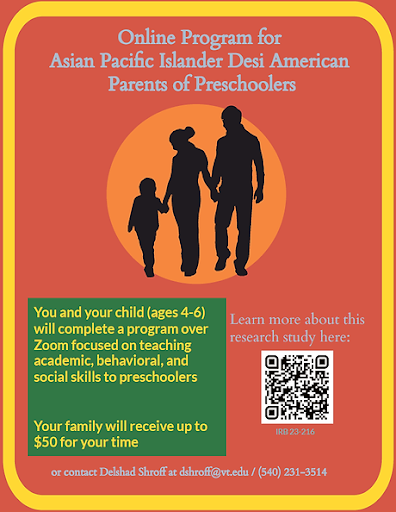Behavioral problems are common challenges faced by parents, teachers, and other caregivers. Regardless of whether these problems are mild disruptions such as interrupting conversations or more severe issues such as physical aggression, they are indicative of a child’s unmet needs or lagging skills. These behavioral concerns provide an opportunity for collaborative intervention: collaborating with a child proactively about problems causing undesirable behaviors.

When dealing with disruptive behaviors, replacing power and control methodologies with creative problem-solving fosters autonomy and accountability, while also creating a supportive environment for long-term growth and skill development. Renowned clinical psychologist, author, and adjunct professor in the Department of Psychology at Virginia Tech, Dr. Ross Greene, outlines this innovative and effective approach to understanding and addressing behavioral difficulties in his book, “The Explosive Child.” His approach, that has been regarded by several caregivers and teachers as “life-changing,” emphasizes empathy, understanding, and collaboration, instead of punitive measures.
Five key themes are essential to understanding and effectively adopting this Collaborative and Proactive Solutions approach:
- Problematic Behaviors indicate Unsolved Problems: Often, challenging behaviors are a child’s way of communicating that their skills do not match the demands of their environment. As such, caregivers and educators should work to understand why a child is having difficulty with meeting certain expectations. The emphasis is on the problem (and solving it), rather than on the specific behavior (and modifying it)!
- Problem Solving is Collaborative, not Unilateral: The goal is working together to understand the child’s difficulties and developing mutually agreed upon solutions to the identified problems. In addition to a sense of agency, this fosters increased responsibility and accountability in children.
- An Empathic Perspective: It is very important to empathize with the child’s perspective and understand their challenges. As Dr. Greene repeatedly states, “Kids do well if they can (not if they want to).”
- Proactive, not Reactive: Instead of punishment, which is a reactive response to behavioral issues, proactively solving the problems that are causing the concerning behaviors promotes long-term growth and prevents future problems. Teaching and equipping the child with skills they lack such as emotion regulation and problem-solving enables them to manage their behavior more successfully now and in the future.
- Mutual Respect: Working collaboratively to address problems helps to avoid power struggles by involving children in the decision-making and problem-solving process.
The next time you wonder why a traditional disciplinary method such as punishment is not working, try to empower children to be active participants in their own development. This approach to solving disruptive behaviors collaboratively will cultivate respect, empathy, and shared responsibility. By doing so, you will create positive and supportive environments that enable long-term emotional and behavioral growth in children.
Resources for Implementing the Collaborative and Proactive Solutions Approach at Home and School:
- Parents and Families: https://livesinthebalance.org/parents-and-families/
- Educators: https://livesinthebalance.org/educators-schools/
- Raising Human Beings: Creating a Collaborative Partnership with Your Child by Ross W. Greene, PhD: https://drrossgreene.com/raising-human-beings.htm
- Lost at School: Why Our Kids with Behavioral Challenges Are Falling Through the Cracks and How We Can Help Them by Ross W. Greene, PhD: https://drrossgreene.com/lost-at-school.htm

Do you have a preschooler exhibiting behavioral difficulties? Are you from an Asian Pacific Islander Desi American (APIDA) background? The CALMER Lab at the Child Study Center at Virginia Tech is currently recruiting for a Collaborative and Proactive Solutions research study (IRB # 23-216) for children ages 4-6 from APIDA families. If you are interested in learning more or in participating, please contact Delshad Shroff at dshroff@vt.edu or (540) 231-3514.

Not eligible for this CPS Study? Check out our Treks Study for parents of 2-12-year-old children with behavioral problems. The Treks app seeks to reduce child behavior problems and increase parents’ feelings of competency in supporting youth behavior. If you would like to learn more about the study, please contact us at vtautismcenter@vt.edu or (540) 231-8747.




